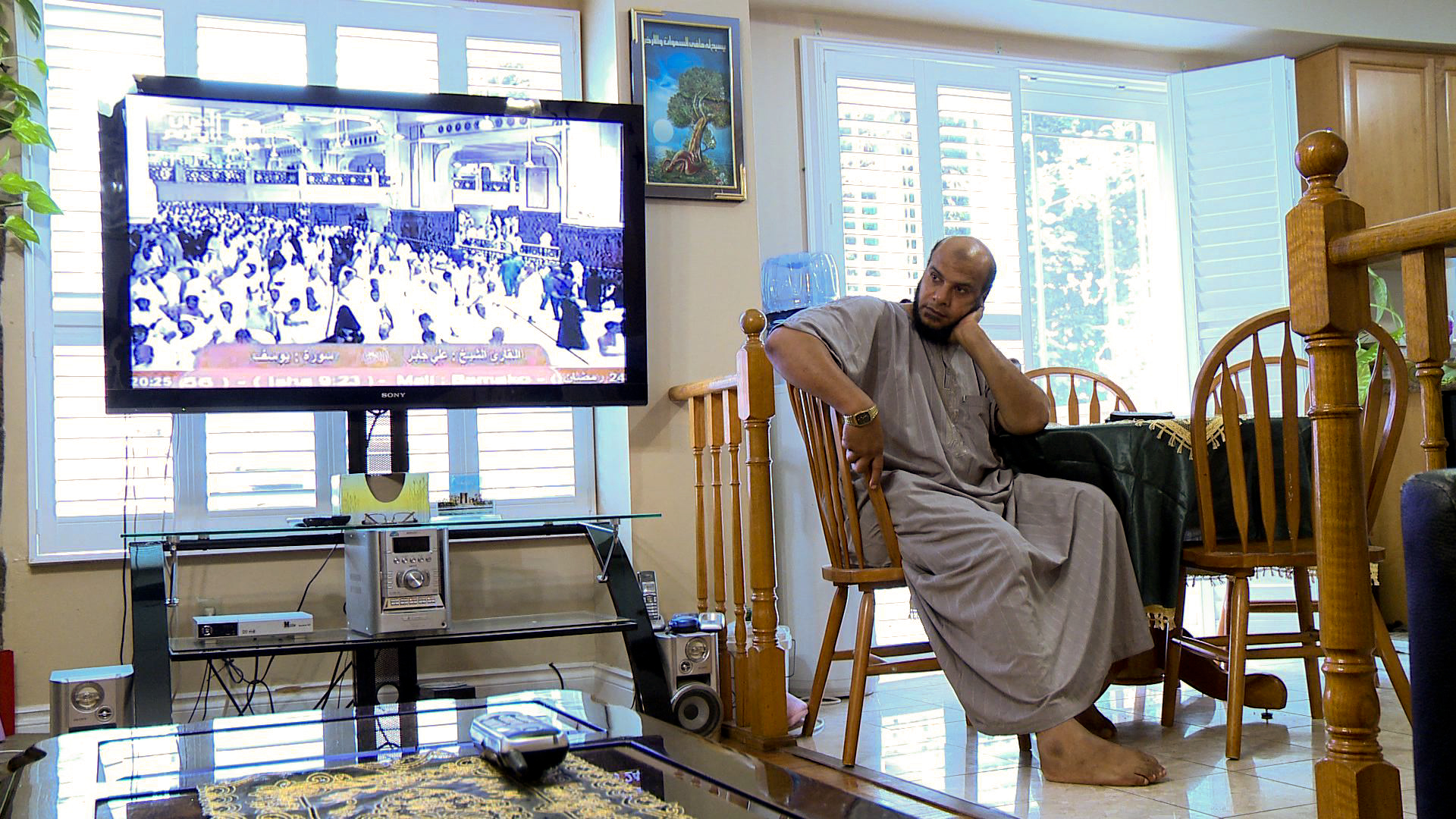“Our strength is in our humanity, in our justice system and in who we are as a people, and if you let fear dictate how you live your life, then you lose everything.”
– Ahmad Jaballah, son of Mahmoud Jaballah
After four years of production and grassroots fundraising, the story of Canada’s secret trials is finally hitting the big screen.
The Secret Trial 5 will be premiering at the Hot Docs Canadian International Film Festival in Toronto April 26, 28 and 30. A cross-country tour will follow.
The documentary tells the stories of four Muslim men (the fifth declined to participate). All of them were held without ever being able to see or challenge the evidence of their alleged terrorist activity. Told that all they needed to do was leave the country to gain their freedom, the government could not itself deport them to countries where they’d likely be tortured or risk breaching international law. If the time these five men served were added up, it would total 30 years in prison.
Security certificates, long considered by legal experts as “draconian,” have been around for years, though they were rarely used before 9/11. The Secret Trial 5 shows how the law affected the lives of five men and their families in irreparable ways through deeply personal interviews, archival footage and in interviews with lawyers, academics and activists.
Director/producer Amar Wala and producer Noah Bingham pulled together a talented team to help weave these stories into a clear narrative around the tensions between security and liberty, using animation to help explain and show the ludicrousness of the principles underlying the certificate regime.
In 2007, the court ruled that the law governing security certificates was not constitutional. This film’s release comes just as the Supreme Court of Canada is set to rule on whether or not government amendments to the law are enough to make it constitutional.
Tellingly, not a single government department agreed to speak to the filmmakers, though there is one familiar scene in the film in which expert after expert warns the government that their amendments to the law will not stand up to another constitutional challenge.
Those warnings fell on deaf ears and the government passed the changes anyway, allowing special advocates to see the evidence against the detainees but barring them from ever discussing it with their clients in order to mount a challenge.
Six years later, here we are, waiting for the Supreme Court of Canada to once again rule on who’s in the right: the government, or the coalition of human rights, legal and civil liberties organizations who stood with Mohamed Harkat to challenge the law.
In the meantime, the film is a must-see for anyone who is interested in knowing how our government has attempted to uphold national security and what it has been willing to sacrifice both morally and financially. On a cultural level, the film is a testament to the power of crowdfunding and the leveraging of social media to garner support for documentaries committed to exploring issues around social justice. With ongoing cuts to public broadcasting and the arts, the task of telling Canadian stories like these will increasingly fall to independent filmmakers supported through individual donations.
These are stories that beg to be told.
The opening scene of the documentary is set to the music of a classic Egyptian song in which the singer asks, “Why do you blame me?,” as Mahmoud Jaballah sits in his Mississauga home, where he has remained under house arrest for the past six years.
It blights our democracy that Canadians, and those caught up in this nightmarish dragnet, will never know the answer to that question.
To learn more about the film, and the issues, visit the website at http://secrettrial5.com/
We welcome your film review suggestons at [email protected] or on Twitter @AmiraElghawaby



